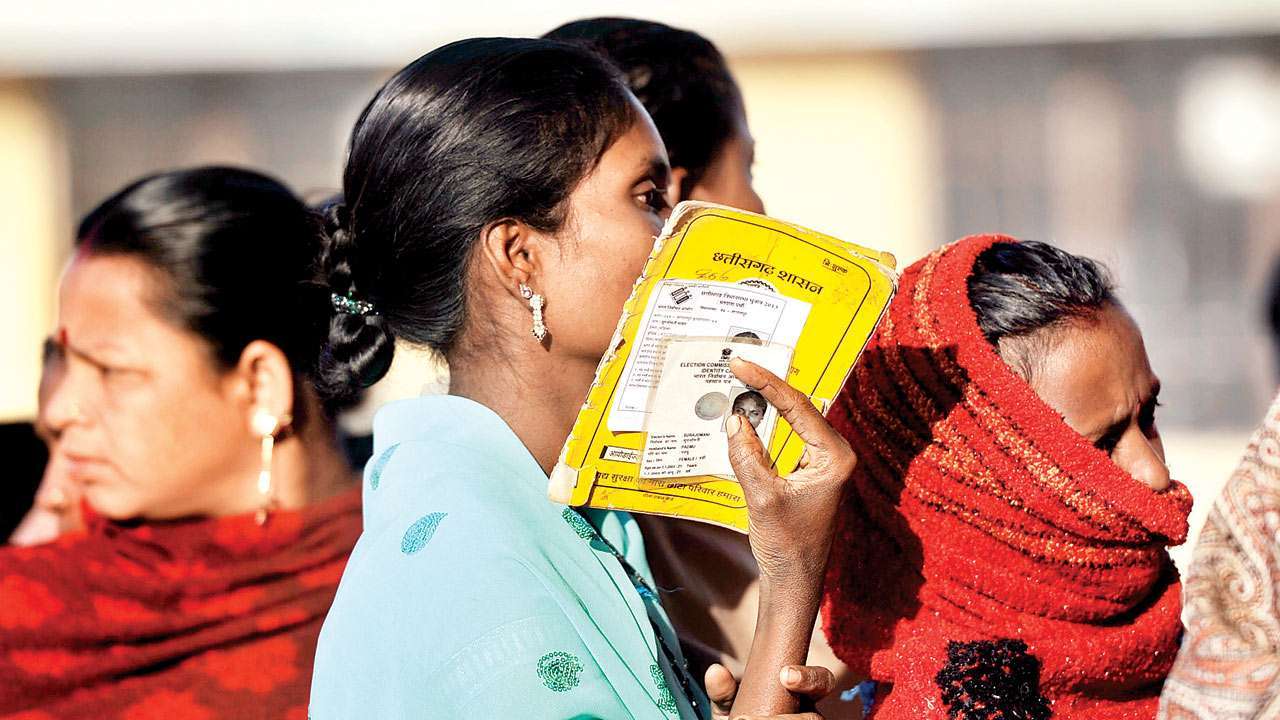
A marginal rise in voter turnout at the first phase of Chhattisgarh Assembly election coupled with the emergence of a third front suggests that the Opposition campaign has failed to strike a chord with voters in Chhattisgarh.
The turnout in the first-leg of the two-phase polls for the 90-member assembly was recorded at 76.28 per cent, less than one per cent increase over the 75.79 per cent in 2013.
The 18 assembly seats which went to polls during the first phase have long been regarded as a Congress bastion. The party, which is the main opposition in the state, currently holds sway over 12 of these seats.
In the run-up to the polls, a resurgent Congress, buoyed by a spurt in petroleum prices, had built its campaign around mounting anti-incumbency against the BJP government led by Chief Minister Raman Singh.
Understandably, phase one seats were a mainstay of the Congress' plans, and the party was optimistic about increasing its tally in its citadel. The plans, however, met an early disappointment when former chief minister and Janata Congress Chhattisgarh (JCC) chief Ajit Jogi weaned BSP supremo Mayawati away from the Grand Old Party.
According to sources, the BSP and Congress had held elaborate parleys for a pre-poll alliance, but talks broke down after the prospective partners failed to reach an amenable seat sharing formula. A visibly upset, but guarded, Mayawati announced plans to contest the Assembly elections in partnership with JCC and the CPI. In addition to adding a fresh dimension the polls which has always seen a two-party war, the new alliance also brought a long-awaited reprieve for Jogi who was out of the political arena since his ouster from the Congress in 2016.
The presence of the Jogi-Mayawati combine in a traditionally two-sided contest had elicited a mixed response from political opponents and analysts. While political parties were quick to waive off the alliance as a non-starter, analysts remain divided over the ability of the hastily-cobbled coalition to make a significant mark on the election outcome.
Some, however, argue that the alliance will whimper out and the polls will remain a direct face-off between the traditional rivals — the BJP and Congress. Others suggest that the Dalit-Tribal combination will join the anti-incumbency chorus and aim for a piece of the resentment pie.
Either way, it is a tough prospect for both the ruling BJP and opposition Congress as Jogi's stature as the tallest Tribal leader in the state combined with Mayawati's Dalit cadres could easily alter poll equations for the 39 reserved seats in the state. Of the total 90 seats in the state assembly, 10 are reserved for Scheduled Castes while 29 seats are the exclusive domain of Scheduled Tribes.
Astute poll watchers say that the emergence of the alliance makes it pertinent for the Congress to ramp up poll percentages in order to overcome losses caused by a split in the anti-incumbency vote — a tactic that is not reflected in vote statistics for the first phase at least.